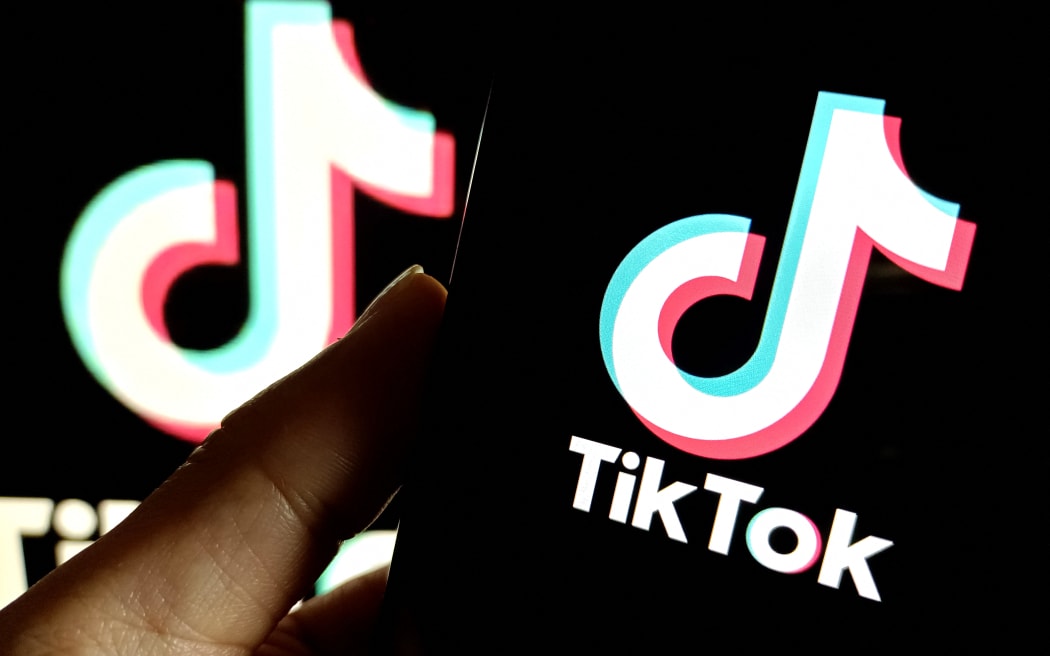
Photo: CFOTO / NurPhoto via AFP
TikTok is not doing enough to get rid of content that promotes disordered eating, says a young woman suffering from an eating disorder.
Eating disorders have increased by a third in the past four years, and social media has been blamed for the rise.
Earlier this month, TikTok banned the hashtag 'legginglegs', which celebrated legs that were said to be thin enough to look good in tight-fitting leggings. The social media platform instead redirects users to the Eating Disorders Association.
It's another in the long list of hashtags no longer allowed on the app, in a bid to make it a safer place, but that hasn't stopped 'Eating Disorder TikTok'.
One young woman - who RNZ has agreed not to name - said content promoting eating disorders was hiding in plain sight, with new code words popping up every day.
"It can be as simple as just replacing a letter with a number. For example, instead of ED for eating disorder, it would be 3D."
And despite blocking certain people and hashtags, it had not gone away.
"Even if you are actively in recovery, and you're trying your hardest to stay away from those triggering posts, social media will now feed that to you," she said.
"The algorithm will make sure that you have to watch it, or you have to at least swipe past it."
'The algorithm finds her'
There has been a 34 percent increase in people diagnosed with eating disorders in the past four years. According to the Ministry of Health, 2085 people were diagnosed in 2023, up from 1556 in 2019.
A mother who had quit her job to focus on her daughter's recovery said social media had played a huge role.
"It's not just her looking up dieting or exercises, the algorithm finds her, and that's all that pops up," she said.
Selina Elison said even if she banned her daughter from using social media, her friends would still discuss the content they had seen at school.
She said they discussed the glamorisation of dieting and eating disorder behaviour that they had seen online.
Elison published a book - Bulimia: Understanding the Voice Inside Her Head - this week, about her struggle to find adequate treatment for her daughter in New Zealand.
She said there needed to be more funding, education, and support - not just for the person affected, but for their families too.
"It gets tiring after a while, because you struggle.
"All you think about is food, and if your child is eating, and when you have your child at home, you don't even know what to talk about anymore.
"You're overwhelmed, and you're very fearful because your child can die," she said.
The New Zealand Eating Disorders Clinic provides specialist eating disorder treatment.
Director Dr Roger Mysliwiec said the health system was outdated, and was unprepared for the growing number of people who needed help in New Zealand.
"I would suggest a review of the whole eating disorder treatment provision," he said.
The Eating Disorders Association of New Zealand provides support, help and resources to people caring for loved ones with an eating disorder.
Megan Tombs, who runs the nonprofit organisation, said content from TikTok did not stay on the app.
"Most of the young children have grown up with YouTube videos, and so parents are a lot more lenient, but the content on YouTube gets just as dark," she said.
"Even if you keep your child off TikTok, the TikTok videos end up on Youtube and they watch it that way."
Despite months-long waiting lists and difficulty in getting treatment, Tombs said sufferers and their families should not give up.
"Recovery is one hundred per cent possible, one hundred per cent of the time."
A statement on TikTok's website said it wanted to be a place that encouraged self-esteem, and did not promote negative social comparisons.
They said they did not allow showing or promoting disordered eating or any dangerous weight loss behaviours.
However, TikTok said that they were aware it continued.
They stated that they have consulted eating disorders experts, researchers, and physicians to acknowledge more symptoms, such as as overexercise or short-term fasting, that are frequently under-recognised signs of a potential problem.
"This is an incredibly nuanced area that's difficult to consistently get right," they said.

